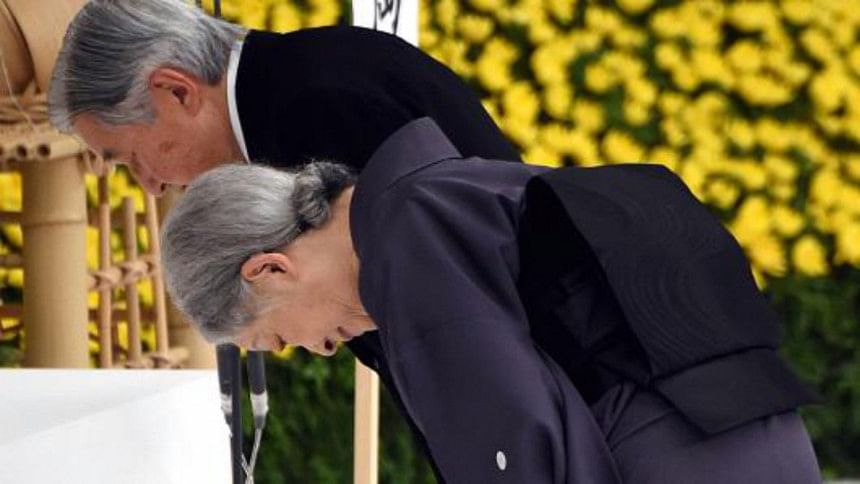AKIHITO EXPRESSES REMORSE: WHY DOESN'T PAKISTAN?

That humility does not transform a giant into a minnow has been exemplified by Emperor Akihito of Japan in a recent statement. Associated Press reports that that while talking about the outcome of World War II he expressed "deep remorse" over his country's wartime actions. In a modest tone he said, "Reflecting on our past and bearing in mind the feelings of deep remorse over the last war, I earnestly hope that the ravages of war will never be repeated."
The Emperor has expressed deep remorse for what had happened so many decades ago and their part in it. Has he become small by doing so? Has he tarnished the image of Japan by saying so? Perhaps history will judge it one day. But for now, we can only express our appreciation for the humility with which he spoke those words. Only a person of very high stature could do so.
Emperor Akihito's words of remorse remind us that even after 44 years of committing the worst kind of genocide on the unarmed people of Bangladesh, Pakistan has never expressed remorse or officially apologised to the people of Bangladesh. Pakistani troops had swooped down on the unarmed citizens of its own country in March 1971 and killed millions of them over a period of 9 months.
It was not a war between two enemy countries and yet the army of Pakistan occupied the land like an invading army and treated the entire populace of then East Pakistan, especially the Bangalis, as prisoners of war. They let loose a reign of terror by shooting down young and old, torching their homesteads, raping their girls and women, and looting their valuables. Even when the international media and the international community in general started to protest the killings, the military junta never bothered to listen to their pleas and stop the atrocities.
Bangalis were forced to take up arms and launch guerrilla warfare to thwart the movement of the foreign forces across the country. Bangalis suffered immensely but did not lose heart in their final battle for freedom. They deservedly won victory on December 16, 1971.
Soon after the birth of Bangladesh, the government of Bangabandhu Sheikh Mujibur Rahman had contacted the then government of Pakistan to pay our share of the wealth and settle other similar issues as soon as possible.
The Bangladeshi government communicated with successive governments in Pakistan demanding a formal apology for the genocide, but the Pakistani governments never responded in the positive. The surprising part of the story is that Pakistanis never took into cognizance the political and military blunders committed by their political and military leadership respectively in the then East Pakistan in the name of crushing the rightful movements of the people in realising their demands for fairness and parity. The thought that the Pakistani politicians and the military had inadvertently contributed to the hastening of the creation of Bangladesh has never crossed their minds in the last four plus decades. Throughout the 23 years of unlawful domination of East Pakistan by West Pakistan, the colonial attitude of the civil and military powers had greatly clouded their rational thinking process. The end had to be painful for such condescension.
Pakistan had to pay the price for its misdemeanour and misadventure in Bangladesh. It learnt the hard way that guns cannot always solve all problems in this world. And yet, despite many calls by some wise members of Pakistan media and civil society, the government remains as unperturbed as ever in saying sorry to Bangladesh.
Since the two countries have diplomatic and trade relations like other countries of the world, there should not be any hesitation on the part of the Pakistani government to offer an official apology for their role in East Pakistan in 1971, and in settling the wealth sharing issue at the same time. The Emperor of Japan has set a unique example. Pakistan can take a cue from there.
The writer is Special Supplements Editor, The Daily Star.

 For all latest news, follow The Daily Star's Google News channel.
For all latest news, follow The Daily Star's Google News channel. 



Comments